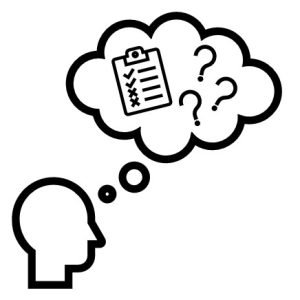Transition Between GCSE and A-Levels
by Ayesha Geekiyanage Don, with contributions from Safiya Zaloum and Thomas Yau
The transition between A-Levels and university is typically considered to be tricky, however the same can be said for transitioning between GCSE and A-Levels. Despite there being fewer subjects to study at A-Level compared to GCSEs, this does not necessarily make it easier, as many students usually expect. Although tricky, the transition is totally do-able, but there are a few things that are worth knowing from the get go.
 Increase in Detail
Increase in Detail
One of the biggest differences you will feel is the increase in detail that’s expected at A-Levels, which offsets the reduced number of subjects. Not only will more concepts be introduced, but each of those concepts will require a more in-depth explanation, which is something that you may not yet be accustomed to. Overall, this means there’s a large increase in your expected knowledge, and it can seem overwhelming at first. One tip is to use the specification for your exam board and subject, which are available to view online. Specifications are documents that outline the expected knowledge for a subject, essentially acting as a checklist. It’s a great tool that can allow you to structure your revision, breaking it down into smaller sections, allowing it to seem not as overwhelming.
Exam Technique
At A-Levels, just memorising the content you’re expected to know may not be enough. This is because the exam questions will ask you to apply your knowledge in unfamiliar situations, whether it is calculations in Maths, Chemistry or Physics, or writing essays in Biology, Psychology or Geography. As such, it is really important to practice your exam technique before the exam itself. This can be done by completing previous exam questions as practice, and is something that should be included as part of your revision. The earlier you start completing practice questions, the more prepared you will feel when it comes to the real thing. You may start by completing the questions in ‘open-book’ conditions, where you are able to use your notes and textbook. Once more revision has been completed, the questions can be re-attempted in exam conditions, allowing you to test your revision and also consider exam timings.
 Revision Methods
Revision Methods
During GCSEs, you will probably have found a few methods of revision that work for you. Many students find that the same techniques that were used during their GCSE studies, do not necessarily work during their A-Level studies. One such example is the writing of detailed notes. Due to the increase in detail, writing notes can be more time consuming, but may not have the intended effect. Alternatives to detailed notes, can include flashcards and mind-maps. This can also help with exam performance, as many exams will require you to understand and apply a concept, as opposed to just memorising and recalling it.
These are just some of the changes that you might experience when transitioning between GCSE and A-Levels. Although difficult, this transition can be made more manageable by following some of the tips provided here, and by finding the routines and techniques that work the best for you. Speaking with peers and teachers can also help!
